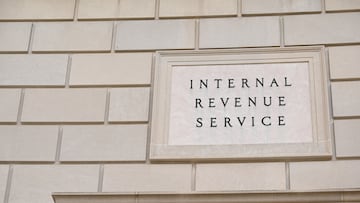IRS to increase the number of audits: who may be affected?
IRS reveals they will be increasing audits on a certain tax bracket and major corporations. Whose tax records are going to be exposed to increased scrutiny?

In 2022, the Internal Revenue Service (IRS) set a target of increasing its revenue by $100 billion over the next decade.
The plan is to achieve this by increasing the level of audits to ensure that taxpayers are not hiding their income from the federal government. While this has understandably caused concern for those on lower incomes, the head of the IRS has reassured Americans that the audits will mainly focus on high-income earners and corporations. This message was reaffirmed on by reporters with IRS Commissioner Danny Werfel. The announcement said that audits will target the “wealthiest taxpayers, large corporations, large complex partnerships.”
Earlier this year, Commissioner Werfel said that the IRS was working on an auditing program that would address racial injustices that had for years led Black taxpayers to be audited at much higher rates than their white counterparts. During the call this week, the commissionaire added that changing course to reduce discriminatory practices that “degrade trust in our tax system” was a major priority within the organization.
In the past, Commissioner Werfel has made clear that the IRS’s move to increase audits will not target average taxpayers, those who receive W-2s or Social Security payments, or small business owners. He stated that there will be no new wave of IRS audits for these groups, and they should not worry about their finances being scrutinized. Instead, the focus will be on building capacity for higher-income individuals and corporations over the coming years.
READ ALSO: Here’s how you can receive extra SNAP benefits this summer
Here's the #IRS strategic operating plan update https://t.co/ehmc9m0Me9
— Phyllis Jo Kubey (@PKubeyEA) May 2, 2024
The plan says that by 2026, “the IRS will nearly triple audit rates on large corporations with assets over $250 million to 22.6% in the tax year.” The agency reported that in 2019, notably during the Trump administration, the rate stood at 8.8 percent. Additionally, as it relates to the focus on “large, complex partnerships with assets over $10 million,” the IRS plans to increase adults “from 0.1% in 2019 to 1% in the tax year 2026.” As far as the target of wealthy individuals, the IRS aims to increase the rate by more than fifty percent for those with incomes over $10 million.
What is an audit?
An IRS audit is a review of an individual’s or business’s tax return to ensure that the reported income, deductions, and credits are correct and comply with tax regulations. There are various reasons why an audit may be conducted, such as random selection, inconsistencies or mistakes in the tax return, or certain indicators that raise suspicion.
Who will be targeted?
The focus will be on taxpayers earning more than $400,000 a year, which includes those in the highest tax brackets as well as large corporations.
In August 2022, the Inflation Reduction Act was signed to provide a significant boost to the IRS. The bill has allocated an additional $80 billion to support the tax agency, out of which $45.6 billion will be used for tax enforcement. Werfel was summoned to appear before a Senate committee to explain the plans and to ensure that low-income Americans would not be unfairly targeted.
How to avoid getting audited
While the risk of audit by the IRS for those with a W-2 is low, there are still some tips to follow to avoid raining questions with the IRS.
READ ALSO: What happens to SNAP benefits if you move to another state?
Related stories
The first is to not try and deduct expenses that are prohibited by the IRS. Often times, taxpayers will try and deduct donations to charity that are not registered as 501(c)3 or political contributions. Be sure to verify that the expense is allowed under IRS rules to reduce the risk of your tax return being flagged and raising questions about your tax history.
Next, make sure to pay your taxes on time, and if you are unable, be sure to submit a request for an extension. Taking many years to file a tax return can raise suspicions that you are not paying your fair share of taxes and could lead the agency to investigate further.

